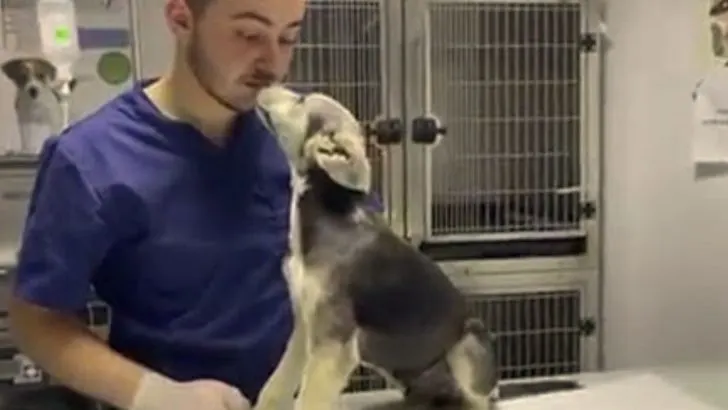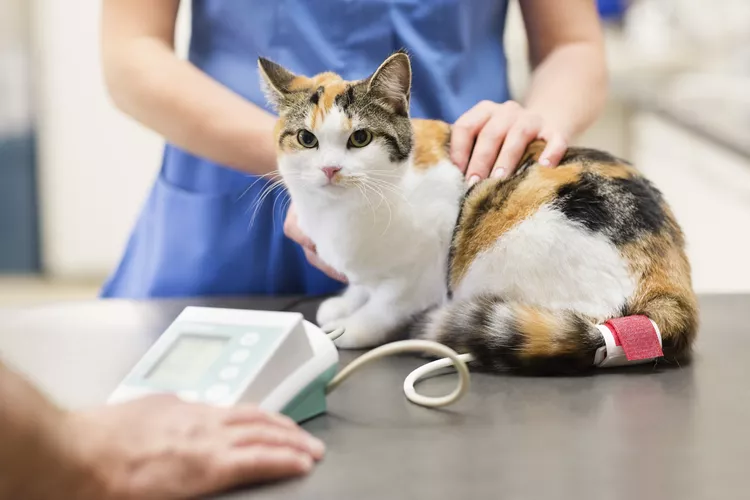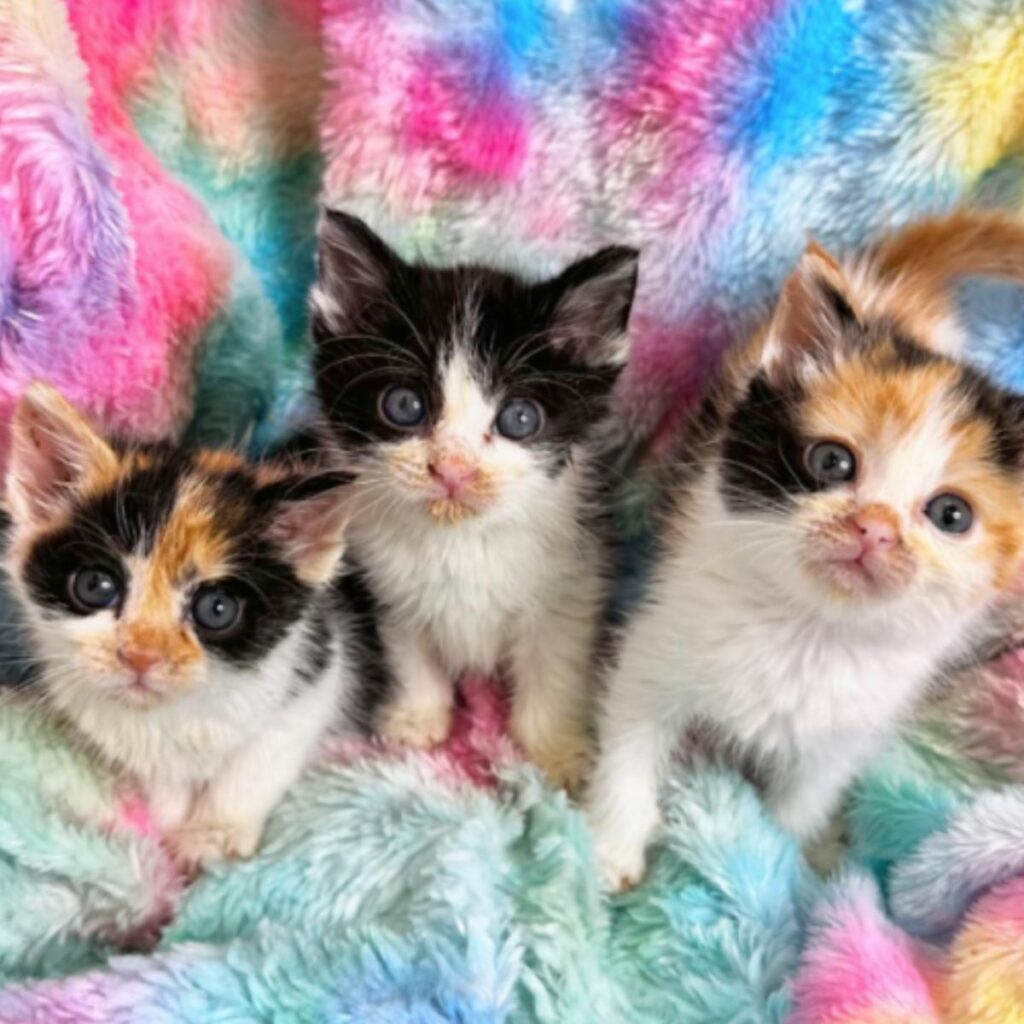Have you ever noticed how your cat‘s meows seem perfectly timed to get exactly what they want?
It’s not by chance.
Cats have developed sophisticated methods to manipulate you through their vocalizations.
They fine-tune their meows, using specific frequencies and tones to trigger emotional responses in you.
This isn’t just a random occurrence; it’s a calculated tactic that showcases the darker side of their seemingly innocent behavior.
Curious about the psychology behind these cat strategies?
Read more: How Much Do Cat Vaccinations Cost? Updated Cat & Kitten Vaccine Pricing for 2024
The Psychology Behind The Meow
Cats have evolved their meows to effectively communicate and manipulate human behavior.
When your cat meows, it’s not just random noise; it’s a calculated move.
Cats have learned that specific vocalizations can get your attention and elicit the responses they desire, whether it’s food, affection, or simply a bit of playtime.
They’ve fine-tuned their meows based on your reactions, making their communication highly adaptable.
You mightn’t realize it, but you’re part of this intricate dance.
When you respond to your cat‘s meow by providing food or a cuddle, you reinforce the behavior.
This creates a feedback loop: your cat meows, you respond, and the cat learns that its vocalization results in a specific reward.
Over time, this loop becomes more refined, and your cat can predict your actions based on its meows.
This manipulation isn’t necessarily sinister; it’s a survival mechanism.
Cats originally domesticated themselves by learning how to interact with humans for mutual benefit.
However, understanding this psychology allows you to see how your cat might be pulling your strings.
Recognizing these tactics can help you better manage your relationship with your feline friend.
Read more: How Many Litter Boxes Should You Have per Cat?
Frequency And Tone Tactics
You might notice that the frequency and tone of your cat‘s meows vary depending on what they want from you.
Cats are clever and know how to get your attention.
A high-pitched, rapid meow might mean they’re hungry and demanding food right away.
On the other hand, a soft, prolonged meow could indicate they want some cuddles or your attention.
Cats use different meowing tactics to manipulate your responses.
If they meow constantly, they know you’re more likely to give in just to get some peace and quiet. This tactic is especially effective in the early morning hours when you’re trying to sleep.
By varying the tone—sometimes urgent, sometimes gentle—cats can communicate their needs and desires more effectively.
Pay attention to the pitch as well.
A low-pitched meow might indicate discontent or a demand, whereas a higher pitch can signal excitement or a request for something specific.
Cats learn which tones and frequencies yield the best results, so they’ll repeat what works.
Read more: Feline Vision: What Colors Can Cats See?
Emotional Triggers In Humans
A well-timed meow can tap into your emotional triggers, making you more likely to respond favorably.
When your cat meows just as you’re about to sit down for dinner or during a quiet evening, it’s not by accident.
They’ve learned that these are moments when you’re more relaxed and receptive.
That plaintive meow can pull at your heartstrings, urging you to give them attention or treats.
Your cat‘s meowing can evoke a range of emotions, from sympathy to urgency.
For instance, when they meow with a higher pitch, it can sound similar to a baby’s cry, triggering your nurturing instincts.
This can prompt you to check on them immediately, even if they’re just looking for a snack.
When they meow persistently, it can create a sense of urgency, making you feel compelled to act quickly.
It’s fascinating how their vocalizations can make you feel needed and valued, reinforcing your bond with them.
But remember, your cat is adept at recognizing which emotional buttons to press.
By understanding these triggers, you’ll be better equipped to differentiate between genuine needs and manipulative meows.
The Science Of Cat Vocalizations
When delving into the science of cat vocalizations, you’ll find that their meows are finely tuned instruments designed for human interaction.
Unlike wild cats, domestic cats have adapted their vocalizations to communicate specifically with you.
Research shows that cats use a variety of sounds, each with distinct pitches and lengths, to convey different needs and emotions.
Cats don’t usually meow to communicate with each other; instead, they’ve developed this behavior primarily to get your attention.
Studies have revealed that cats can adjust their meows to manipulate you more effectively.
For instance, a cat‘s meow might incorporate a higher-pitched, almost baby-like cry to elicit a nurturing response.
This sound is hardwired to grab your attention and compel you to respond.
Additionally, cats can learn which types of meows yield the best results.
If a particular sound gets you to fill their food bowl or open a door, they’ll repeat it.
This adaptive behavior shows just how smart and observant your feline friend can be.
Read more: Leaving Your Cat Alone: How Long Is Too Long?
Real-Life Manipulation Stories
Many cat owners have shared fascinating stories that highlight just how adept their feline companions are at using meows to get exactly what they want.
You might’ve experienced your cat‘s persistent meowing at the crack of dawn, demanding breakfast even before your alarm goes off.
One owner recounted how their cat, Whiskers, would meow incessantly until they opened a specific window, only to ignore it once it was open. The meowing wasn’t about the window at all; it was about attention.
Another story involves a cat named Luna, who figured out that a particular type of meow would compel her owner to offer treats.
Luna even varied the pitch and duration of her meows until she found the perfect combination that her owner couldn’t resist.
You might find this tactic all too familiar if your cat has ever meowed in a way that made you drop everything to meet their demands.
These stories reveal a common thread: cats aren’t just meowing randomly; they’re fine-tuning their vocalizations to manipulate you.
It’s a reminder that your feline friend is more cunning and calculating than you might’ve realized.
Read more: Police Shoot & Kill Dog in Missouri, Owner Files Complaint
Conclusion
You’ve likely experienced your cat‘s manipulative meows firsthand.
By understanding the psychology behind their vocal tactics and how they trigger emotional responses in you, you can see just how cunning they are.
While their meows seem innocent, they’re carefully crafted to get what they want. Next time your cat starts meowing, remember the science and strategy behind those sounds.
It’s a reminder of just how clever—and controlling—your feline friend can be.







